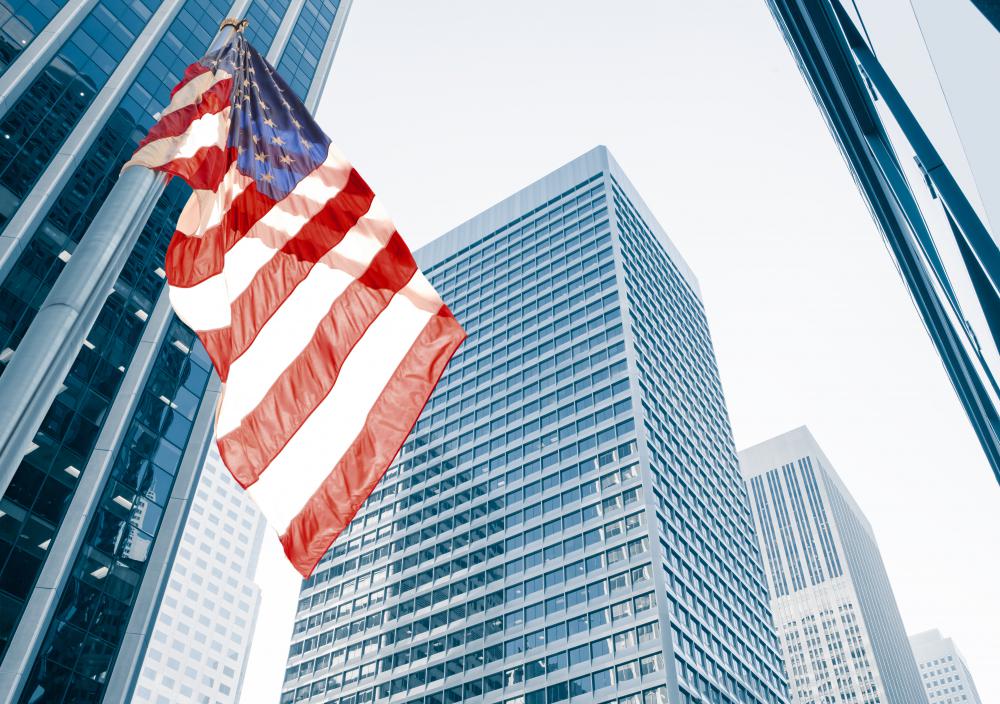At WiseGEEK, we're committed to delivering accurate, trustworthy information. Our expert-authored content is rigorously fact-checked and sourced from credible authorities. Discover how we uphold the highest standards in providing you with reliable knowledge.
What is Trickle Down Economics?
The term “trickle down economics” is used to describe economic policies which benefit the wealthy, with the goal of encouraging wealthier individuals to invest in the economy, thereby providing benefits for the lower classes. As a general rule, "trickle down" is not the term that people who support these economic policies use, but is rather a term used in political rhetoric, usually in rhetoric which attacks such policies. Supporters of trickle down theories prefer “supply-side economics” or “Reagonomics.”
Under the theory of trickle down economics, by cutting taxes for large corporations and the wealthy, the government will encourage these entities to invest in the infrastructure of the nation. This, in turn, creates jobs and stimulates innovation, allowing people in the lower classes to benefit from these investments. Essentially, this theory of economics suggests that by creating an incentive to supply goods and services, the government's policies will benefit the population as a whole.

The major problem with this economic theory is that it doesn't work as effectively as its proponents suggest. A few economists may still cling to the trickle down economics theory, but many more agree that, in fact, it hurts the lower classes, and it hurts the government. By reducing the tax burden for the wealthiest individual, the government cheats itself out of a very profitable wedge of tax revenue, meaning that this revenue cannot be invested directly in the citizens of the nation. Without that revenue, the government may go into debt to pay for basic services, thereby creating a serious problem for future generations.
The issue with trickle down economics is that it relies on actions by individuals which will benefit a whole, and most individuals are not that altruistic. In fact, many wealthy individuals and corporations are understandably interested in protecting their wealth, and when their taxes are cut, they may choose not to reinvest that money, meaning that no funds “trickle down” to people in lower socioeconomic classes. The tax burden on the middle class may also increase as the government struggles to keep tax revenues high enough to fund itself.
Trickle down economics tends to be promoted by conservative politicians who would like to see less government. However, moderates and conservatives have suggested that theories of this kind are ultimately a disservice to the government and the citizens. By collecting reasonable tax revenues, a government can provide the benefits which are supposedly offered by trickle down economics, as demonstrated under politicians like President Roosevelt, who invested heavily in American infrastructure with government funds in the 1930s to foster recovery from the Great Depression.
You may also hear trickle down economics referred to as the “horse and sparrow” theory, referencing a common method used to illustrate the concept in the 1800s. The idea was that by feeding horses lots of oats, sparrows would eventually get to eat the oats, showing how benefits to large entities helped out smaller ones. Proponents of the theory used the metaphor of spilled oats to illustrate the theory, saying that well-fed horses would drop oats from the manger, allowing the sparrows to swoop in and eat them. Critics of the theory suggested that the oats came from a less savory source: the manure of overfed horses.
AS FEATURED ON:
AS FEATURED ON:











Discuss this Article
Post your comments